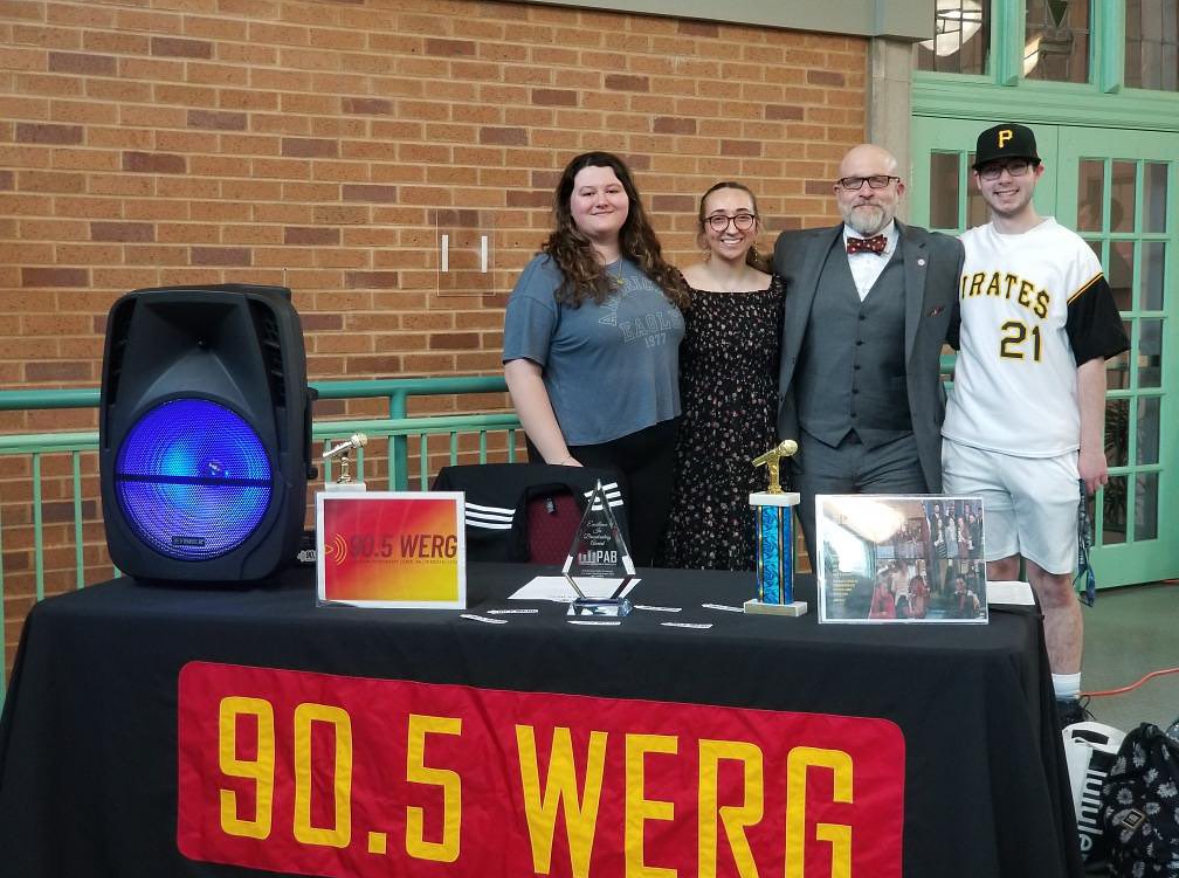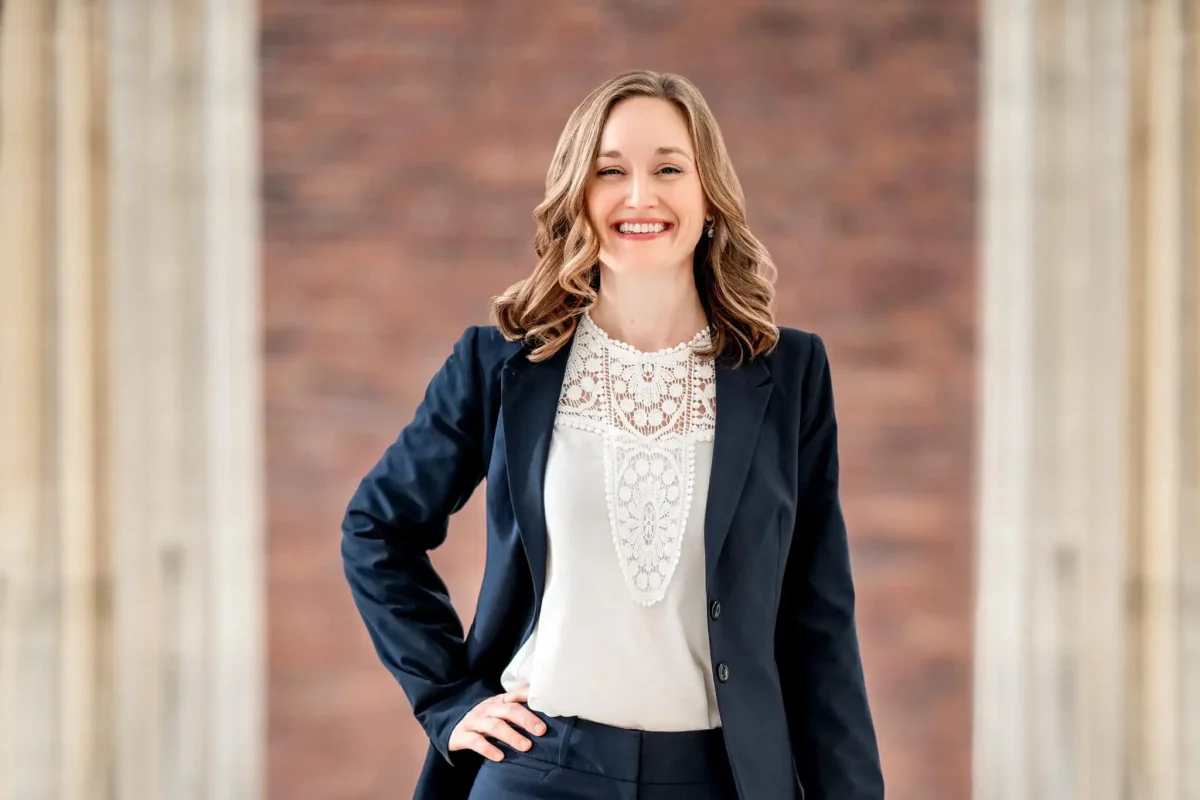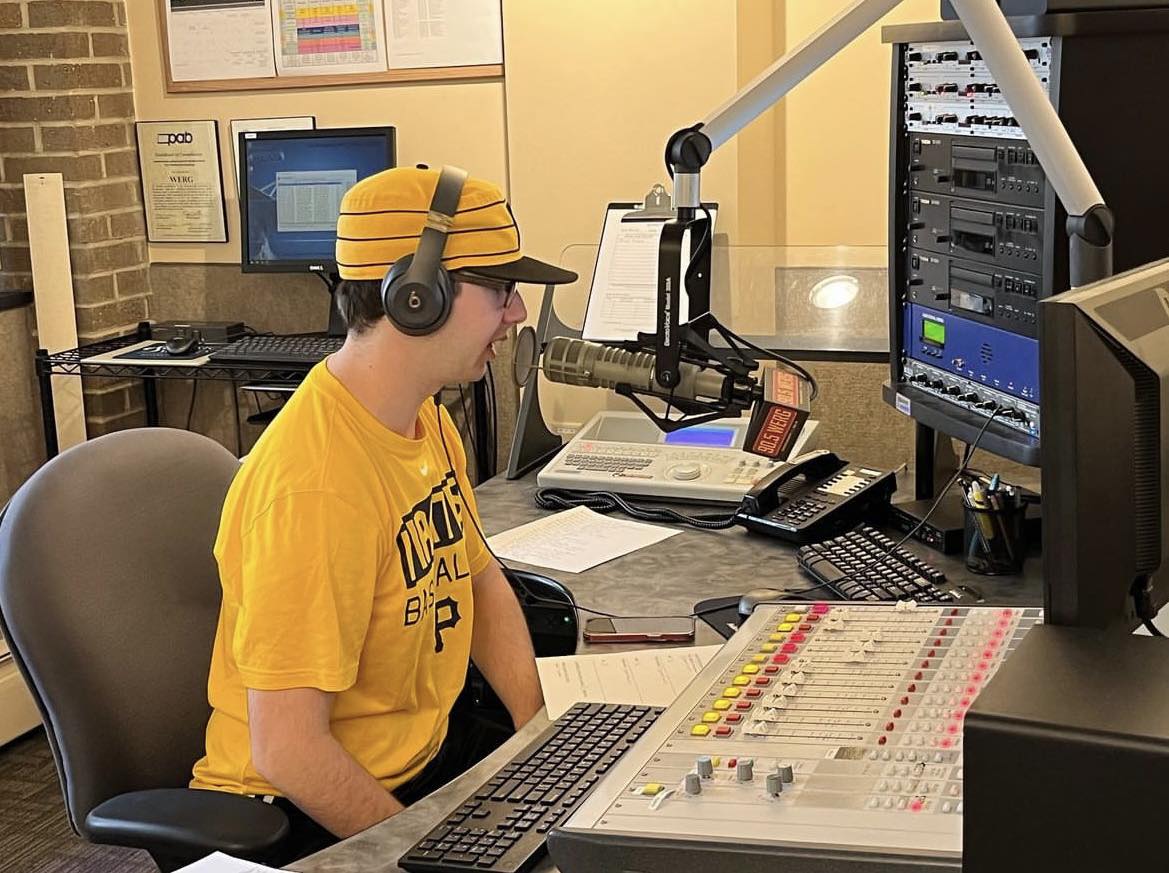While there may be warnings against having too many cooks in the kitchen, several faculty members at Gannon University have proven that the same rule may not apply to the number of teachers in the classroom.
The practice of “team teaching” is starting to gain popularity in the humanities, and is allowing what Jeff Bloodworth calls “sister disciplines” to feed off of one another.
Bloodworth, an associate professor and chair of the history department, is co-teaching two classes this semester – the first, History Through Biography and Historical Fiction, is a project he is undertaking with Elizabeth Kons, director of Gannon’s Writing Center.
According to Bloodworth, he and Kons are each working on books of their own, a biography and a historical novel, respectively, and this sparked them to enter into discussion about adding a historical fiction component to Bloodworth’s existing course in biography writing.
“It’s a perfectly legitimate way to approach and think about the past as a historian,” he said. “It [the idea for the class] emerged sort of organically.”
So far, Bloodworth said the class has been functioning very well because English and history, as sister disciplines, complement each other to give students of both a more well-rounded way of approaching writing.
“We have two different ways of talking about and approaching the past,” he said. “You need to have both skill sets. In historical fiction, you can’t make things up willy-nilly — you have to get certain historical facts correct.
Bloodworth added that both methods of writing historically complement each other in practice, as well.
“You need a historian’s eye [to write historical fiction],” he said. “Biographers, you also need a novelist’s eye for detail to write good history. There’s no boring history, there’s just boring historians.”
Brandon Bricarell, a senior history major, said he decided to take the class in place of a senior seminar, and said he has never taken a class taught by two professors before.
“They bounce things off each other a lot,” he said. “He’ll say something, she’ll rebuttal. They build off of each other’s comments and can spot a completely new idea.
“The students can see them talking across the room to each other, so we can actually see their stories build.”
The course, which has an enrollment of 19, is a workshop-style writing course that allows students the opportunity to learn to incorporate research and historically accurate details into their writing.
Students will even have the opportunity to travel to Washington, D.C., in March to do research at the Library of Congress.
Some will present their completed projects at Celebrate Gannon, which has been largely dominated by the health sciences in the past, according to Bloodworth.
“They’re trying to beef up the humanities presence there,” he said.
Bloodworth has also proven that interdisciplinary team teaching can be successful, as well.
The second collaborative class he is teaching this semester is the Contemporary Middle East with Suzanne Richard, who not only teaches in both the history and theology departments, but is also the director of Gannon’s Institute for Archaeological Research.
Richard said that her role in that class is to familiarize students with the ancient Middle East and certain aspects of the culture, such as the art and architecture.
She added that this meshes well with Bloodworth’s knowledge of the modern, contemporary history and politics of the region.
Richard said that the class is meant to act as a chance for cultural immersion for students planning to study abroad or go on one of her archaeological digs to Jordan.
It is for this reason she and Bloodworth have Athar Madanat, a graduate student and research assistant in the program, teach the students a little Arabic each Friday, technically making the course a three-way teaching endeavor.
Richard played a large role in bringing the possibility of team teaching to the humanities departments to begin with, as she was a member of the liberal studies committee that introduced the idea to the administration about 10 years ago.
“I’m so glad to hear that other people are taking advantage of this, because for a while I thought maybe it had fallen by the wayside,” she said.
Two of the professors who are trying team teaching out for the first time are Penelope Smith, an assistant professor and chair of the English department, and Brent Sleasman, associate professor in the communication arts department.
The two have teamed up to add depth to a graduate course in the English program, Sociolinguistics, that has been taught in the past, but only by one professor. According to Sleasman, the connection makes sense.
“We both share an interest in rhetoric,” he said. “Within the English department, rhetoric is often talked about from the written side, and in the communications discipline, I would trace the roots more back to oral communication.
“We have so much more in common than we have differences.”
Sleasman, who recently returned from a two-week long experience teaching undergraduate homiletics at a seminary school in Haiti, said his experience teaching abroad has fit in well with the ethical aspect of the course he and Smith are teaching.
French, according to Sleasman, is the national language and the language of the Haitian government, but many of the less educated citizens speak Creole.
This concept, he said, provided some fodder for a recent exercise in the Sociolinguistics class.
“If somebody in government wanted somebody who was perhaps less educated – poor, never learned French – out of the government, they could use language as a tool, almost a weapon, of power,” he said. “I’m fascinated by the ethics.”
As a neophyte to team teaching, Sleasman said the most important bit of advice that stuck with him was the difference between team teaching and simply “turn teaching.”
“Our goal is that it’s a different class than it would’ve been if only one of us taught it,” he said.
He added that this goal has been helped along by Smith, who Sleasman said has been “incredibly gracious and flexible.”
“I didn’t feel like I was encroaching on her territory,” he said.
Bloodworth and Richard also said that sharing the teaching responsibilities is an important component of team teaching.
“We [he and Kons] share the ball, and I think we share the ball pretty well,” Bloodworth said. “I’ll defer to her, she’ll defer to me.”
Richard said she finds a similarly successful rapport in her second team-taught class this semester with Richard Moodey, an assistant sociology professor. The class, Archaeology and Public History, combines Moodey’s experience with physical anthropology and Richard’s hands-on archaeological method and theory.
“There’s a certain dialogue between two professors,” she said. “I’m constantly peppering him with questions. You do tend to disagree a little bit, but I think the students like that.”
She said that having a colleague there does allow her to get more in depth with what she specializes in.
“There’s less of a burden for preparing, preparing, preparing, which just allows you to really elaborate more and get into your topic,” she said.
Richard and Moodey’s class will fulfill a component for students who are majoring in history with a focus in archaeology.
Bloodworth said that he could see team teaching working well among disciplines that are not quite as closely related as, say, English and history. He mentioned that he thinks a history of biology course would be interesting for both the scientists and the historians at Gannon.
“It’s not just sister disciplines that can team-teach classes,” he said. “If you have people who are creative and willing to share the ball, I think students can get a lot out of it.”







